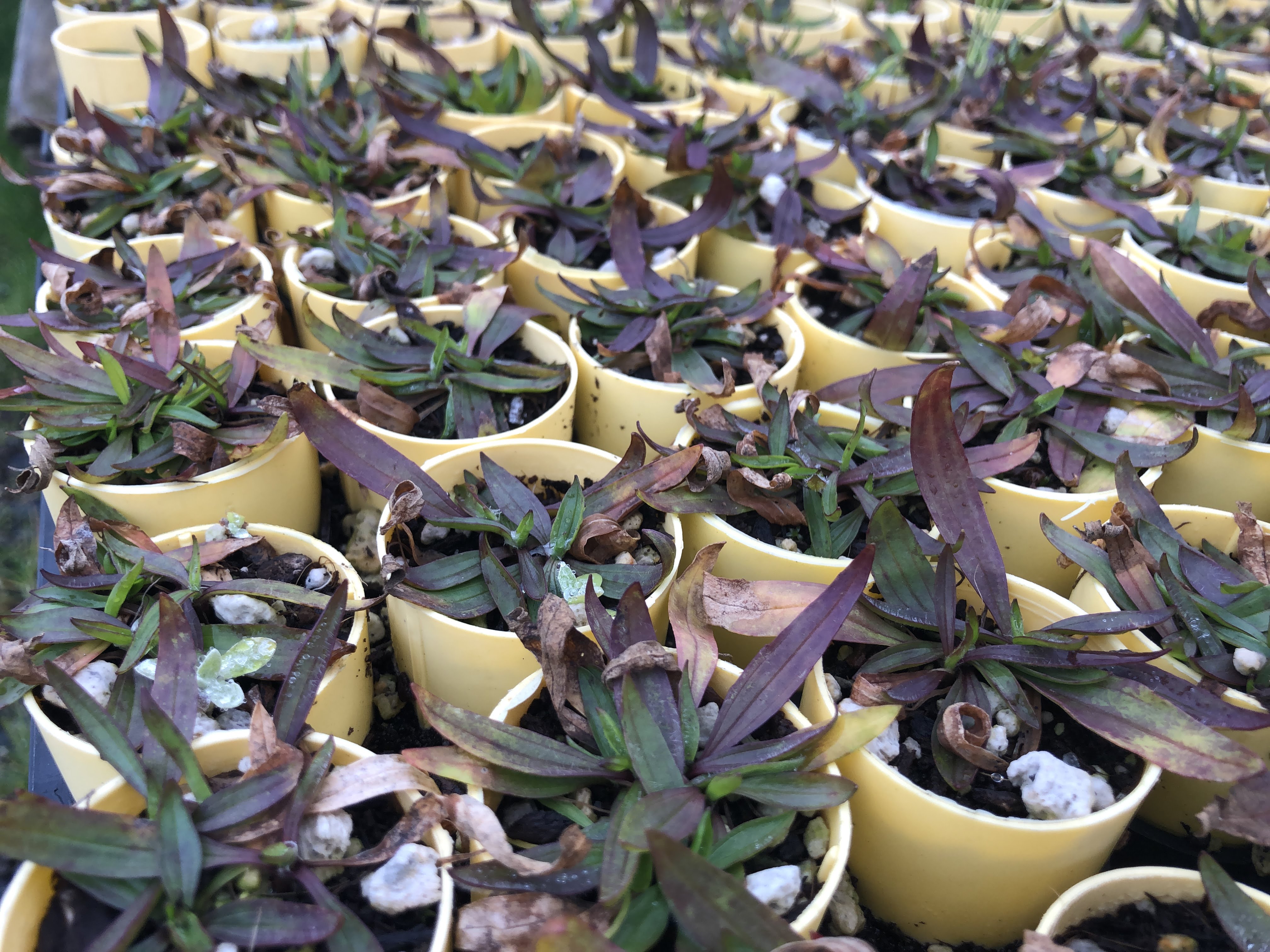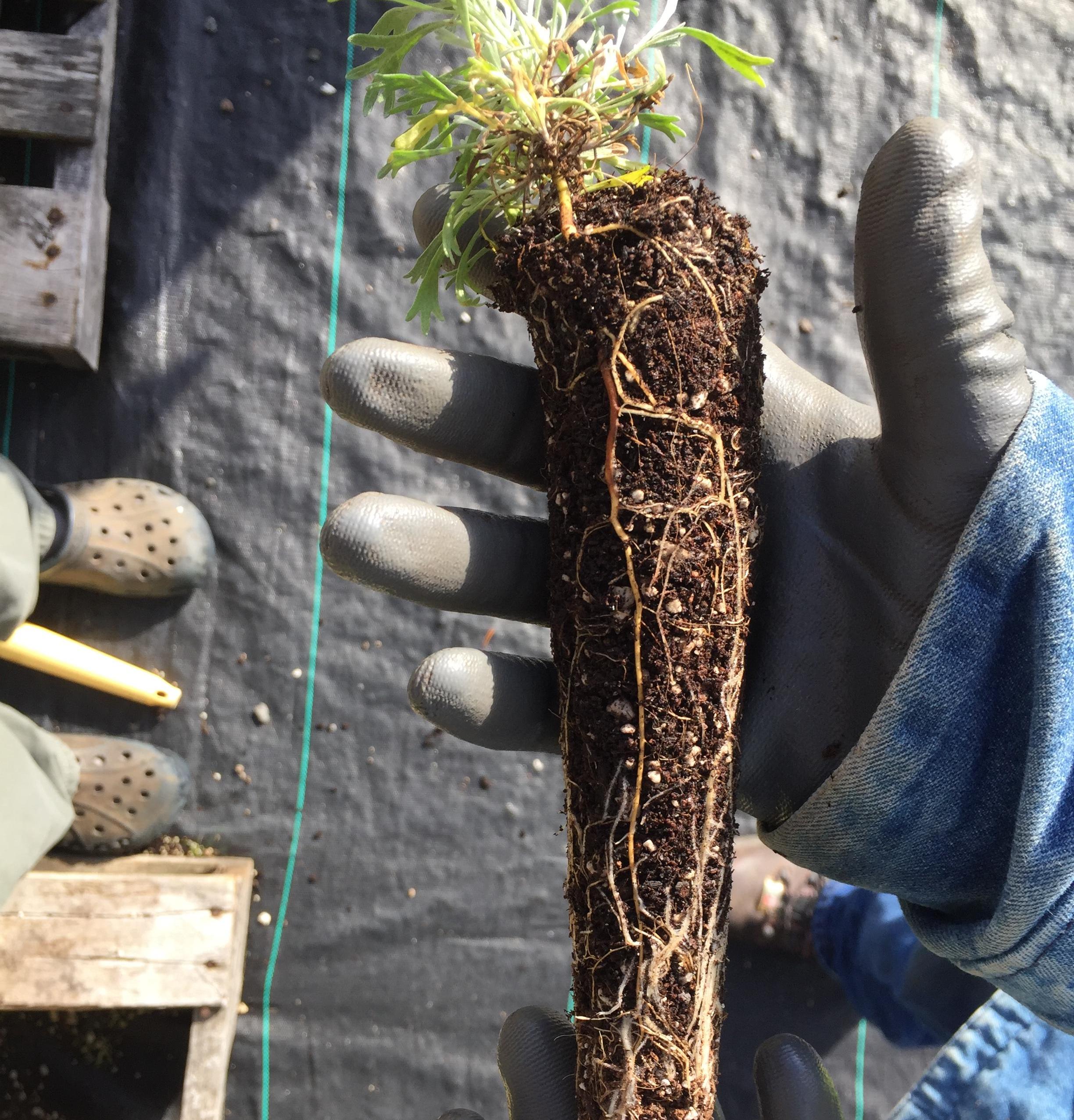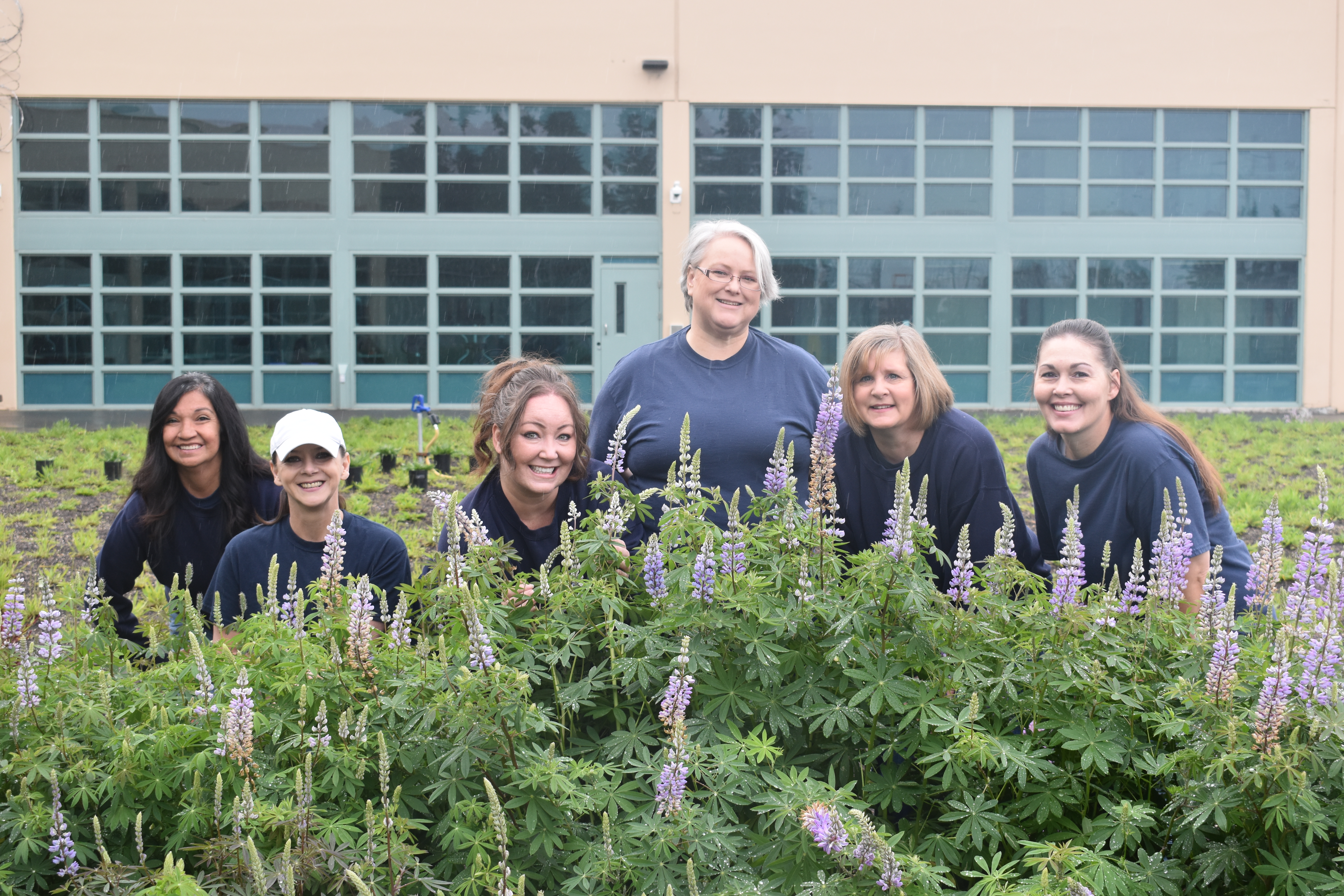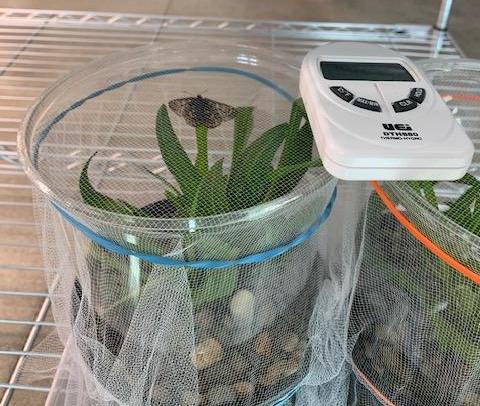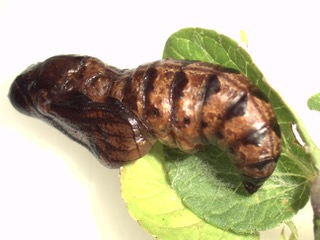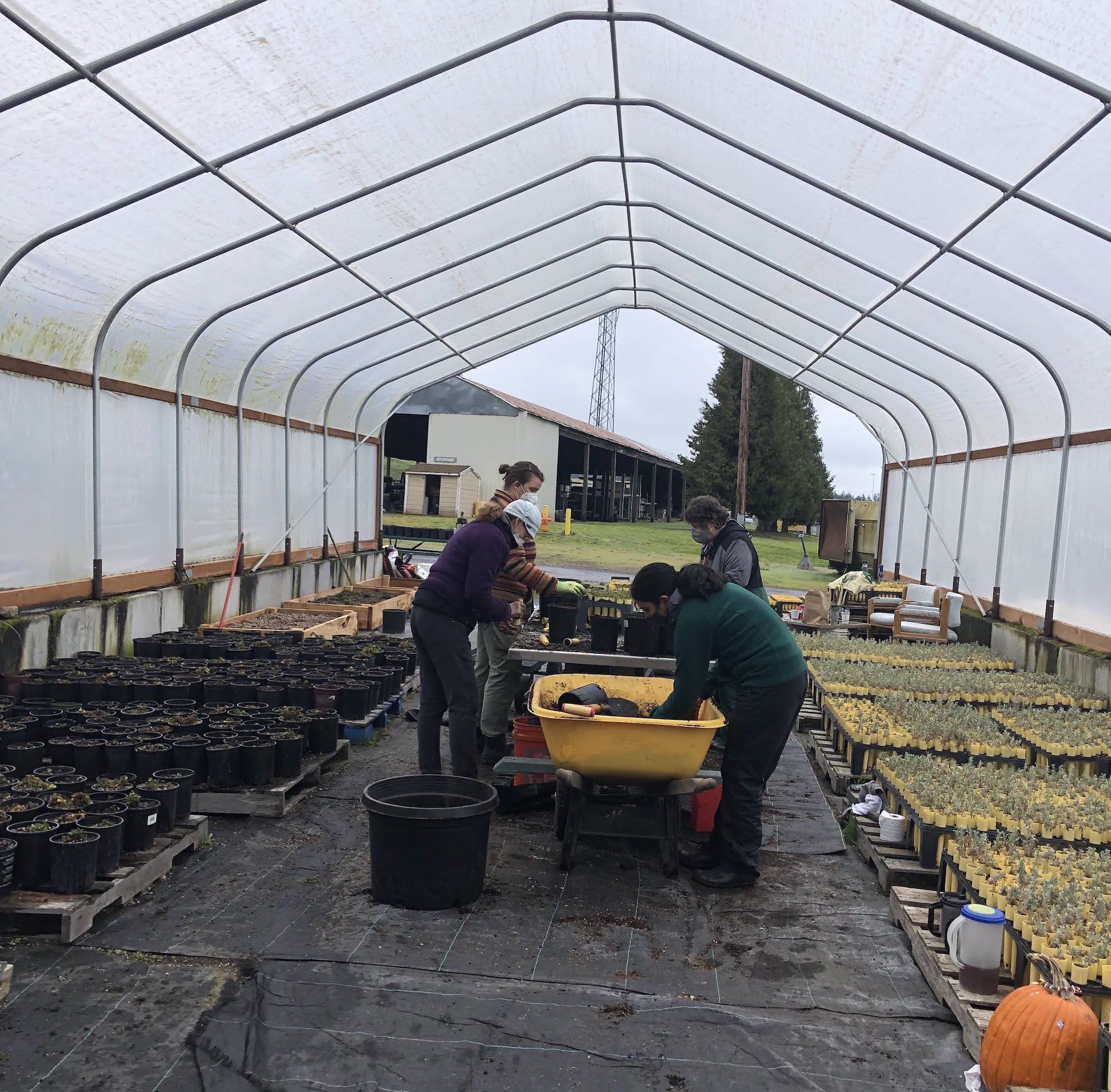
Healing work for women in custody
By Michel Wiman & Karen Hall
Spring 2022
As we approach Coffee Creek Correctional Facility in Wilsonville, Oregon, ominous gray clouds hang low over the towering razor wire, matching the stern gray walls of the prison that houses over 400 women. Prepared with rain gear, handwarmers and thermoses of hot cocoa, a small group of staff and volunteers from IAE gets to work. We are here to jump start the growing season impacted previously by coronavirus lockdowns, staff changes, and winter breaks. We’ll help refurbish and re-pot native plants that are being grown here by women in custody.
With funding from the US Fish and Wildlife Service, the Institute for Applied Ecology (IAE) grows plants to support two butterfly recovery projects at this minimum-security prison: the Taylor’s checkerspot butterfly project (Euphydryas editha taylori) and the Oregon silverspot butterfly project (Speyeria zerene hippolyta). Some of the plants we’re tending today will be planted out to restore butterfly habitat, but most will be used as butterfly food in captive rearing efforts. The Coffee Creek butterfly crew follows procedures developed at the Oregon Zoo to raise Taylor’s checkerspot butterfly in a lab inside the medium security facility at Coffee Creek.
The women in custody here at Coffee Creek also raise sagebrush for planting out into restoration sites across the Oregon, as part of the Sustainability in Prisons Project and IAE’s Sagebrush in Prisons project. Women receive a certificate for their work here that also lists the substantial training that they go through to be able to do this work. These certificates can help women obtain jobs post-release.
The metamorphosis of butterflies from caterpillars provides the perfect metaphor for these women who may use their experiences here to refurbish or re-start lives once released. Women propagate and care for plants all season to feed butterfly larvae – caterpillars - so they can be released after emergence into appropriate natural areas. Researchers have documented the health benefits of working outdoors and with living things, and looking around, there are very few living things or outdoor respites for the women in custody at Coffee Creek. Like the butterflies growing their wings, the women who work on this project will gain job skills that can be used to obtain work upon their release.
We extract plant seedlings from “cone-tainer” pots and place them into larger half gallon pots to accommodate their growth until they can be planted out in the wild and provide habitat for endangered butterflies. On today’s agenda is re-potting western dog violet (Viola adunca) needed to feed silverspot butterfly larvae, and plantain (Plantago lanceolata) seedlings to feed Taylor’s checkerspot larvae. When the season gets busy and larval butterfly instars are large, the food requirements are enormous – and the adults in custody essentially feed and provide for the insects in this growing program.
“Participating in the program shows mental health benefits and better relationships among the women and guards while they are in custody, and upon their release, they want to work on and give back to nature,” says Chad Naugle, Assistant Superintendent of Security at Coffee Creek. “I am passionate about sustaining these butterfly projects, and we value the great relationships with the Oregon Zoo and other partners.”
There is great opportunity to grow these programs to include more women, as well as facilitating jobs on the outside for which participants would be prepared to successfully obtain, such as at a plant nursery. IAE is working on finding a way to connect parolees with nurseries or contract planters, as they could benefit from hiring adults in custody that have experienced outplanting. Holly Hovis, Sagebrush in Prisons staff housed in Idaho, is working on a how-to booklet about finding jobs after incarceration, including horticultural jobs.
Our group surveys a hoophouse full of happy-looking pots and feels the healing power of a full day working outdoors with growing things. Tending to the plants is calming and fulfilling, even and perhaps especially on this chilly gray day.
IAE thanks the Bureau of Land Management, the Oregon Department of Corrections, the US Fish and Wildlife Service, and the Oregon Zoo and countless individual donors for their support of these prison projects.
Restoration
Research
Education
Contact
Main Office:
4950 SW Hout Street
Corvallis, OR 97333-9598
541-753-3099
info@appliedeco.org
Southwest Office:
1202 Parkway Dr. Suite B
Santa Fe, NM 87507
(505) 490-4910
swprogram@appliedeco.org
© 2025 Institute for Applied Ecology | Privacy Policy
